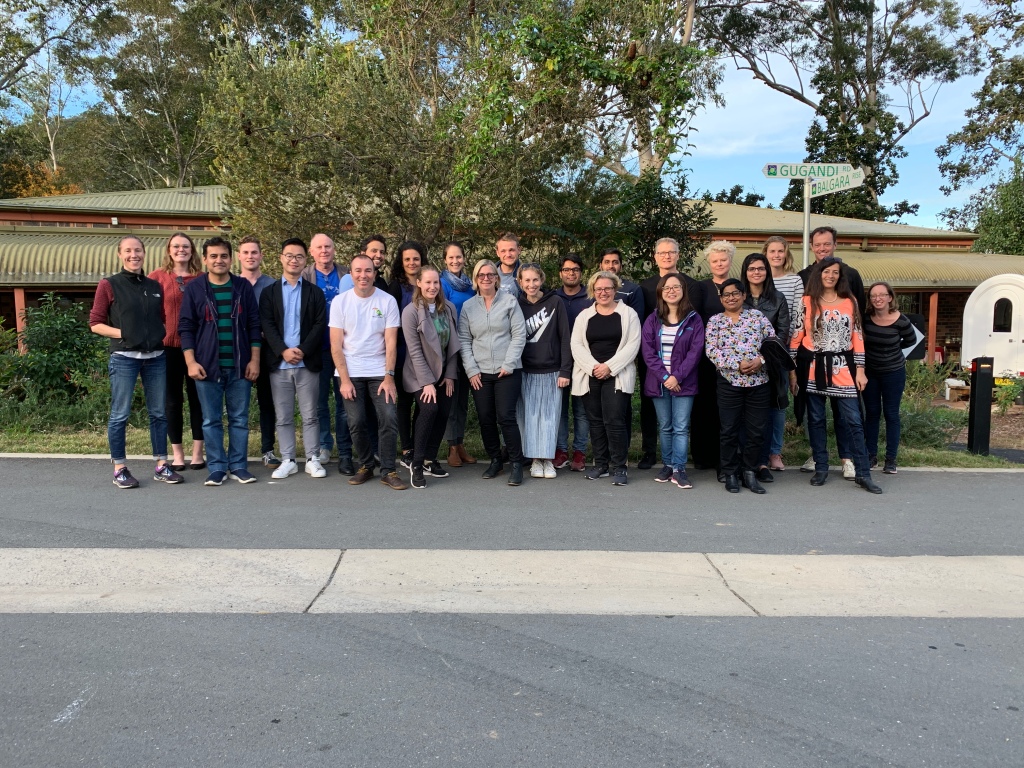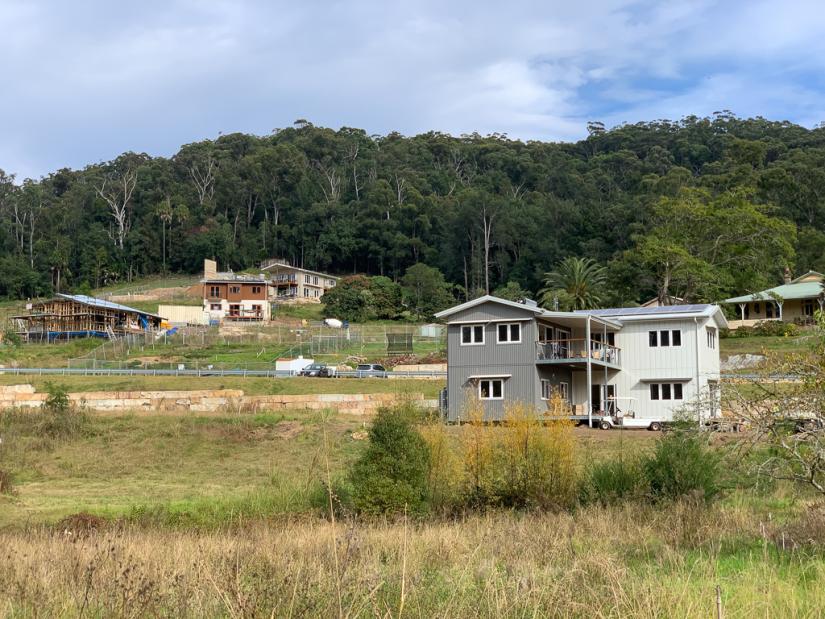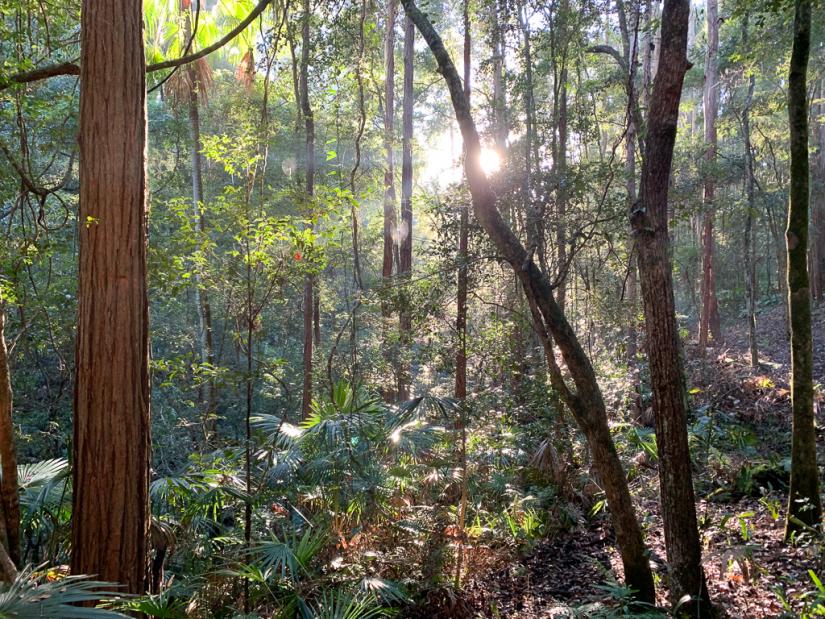Imagine you had the opportunity to build a sustainable community from scratch. Where would you start? What would you build? Who would you involve? How would you make decisions?
Graduate research students and supervisors from the Institute for Sustainable Futures recently had the change to explore these questions when we visited Narara Ecovillage for our annual retreat.

Narara Ecovillage is an intergenerational residential community on a 63-hectare site on the Central Coast of NSW, formerly occupied by the Gosford Horticultural Institute. Founder Lyndall Parris began speaking publicly about her vision for community living in the late 1990s, but it wasn’t until 2012 that she and 24 other founding members acquired the Narara site for $5 million.
Construction began on the site in 2018 and the first families moved in during 2019. The ecovillage is owned and run by a cooperative that plans to create a community of more than 300 people in more than 150 homes. Homes will occupy about one fifth of the site, agriculture and common gardens will take up another fifth and the rest will be retained as native bushland.
Since the birth of the environmental movement, pioneers in sustainable living have played a crucial role in demonstrating that low-impact lifestyles are possible. They have experimented with ways of reducing their impact, living together and governing communities. Narara builds on this tradition.
The Ecovillage has inherited more than 50 existing structures from the old Horticultural Institute, which are being gradually reused and renovated for use by residents and visitors. All new buildings have to comply with sustainable building standards that go well beyond legal requirements. These standards still allow for great diversity in building types and methods – from rammed earth buildings to Earthships to highly-insulated timber-frame buildings.
The Ecovillage uses a sociocracy model of decision-making that allows everyone to be heard and decisions to be made transparently and fairly. It is a facilitated process that seeks responses that are ‘good enough for now’ and ‘safe enough to try’, which leads to more agile responses than full consensus models.

The eco village under construction
Importantly, the Ecovillage aspires to play an educational role, sharing its experience of sustainable living with visitors. That’s why ISF decided it would be a great place to visit for our retreat. Our annual tradition of taking graduate research students and supervisors away from their daily activities for a two-day ‘retreat’ began in 2002. These retreats provide an opportunity to reflect on our research projects together, build research skills and learn from our peers. They also play an important community-building role, which provides support through the tough process of getting a research degree.
Students are closely involved in designing the retreat agenda and in running sessions and activities. This year, we started with a tour of the Ecovillage site. While there’s a lot of construction going on at the moment, you can really get a sense of the potential of the place. To support the sense of community, the green dwellings springing up across the site have no fences and everyone we came across was happy to stop for a chat. The site is surrounded by beautiful forests and the sound of the bellbirds as we explored was truly magical.
After our tour, we moved into several ‘thesis showcase’ sessions where each of the students had the opportunity to share their work in whatever way they chose. Some made videos about their research, some did ‘3 Minute Thesis’ presentations and there was even a children’s storybook and a comic strip. These creative sessions really helped our student and supervisor community to get to know each other.

A morning bushwalk
The first afternoon was devoted to hearing from Narara residents about the journey so far, including inspiration from international ecovillages like Findhorn in Scotland. While ecovillages and intentional communities can often be seen as a bit ‘out there’ and alternative, Narara seems more mainstream than most and has attracted a diverse community that includes plumbers and bankers, property valuers and landscapers, social workers and midwives.
The second day of our retreat explored the idea of transformative research. Narara turned out to be a great location for such a conversation, given its own focus on transforming lifestyles and place. The traditional model of research assumes that there is a dispassionate, objective researcher who is trying to study the world, not to change it. That old model of science is gradually giving way to action research models that recognise the subjectivity of all research. Given ISF’s mission is ‘to create change towards sustainable futures’, we are strong believers in the need for research that transforms, and our sessions explored the growing prominence of frameworks for transformative research.
It’s always fruitful to connect academic theory with leading practice, and our visit to Narara Ecovillage provided a great opportunity for this kind of engagement. If you’d like to learn more about Narara Ecovillage, you can read about it on our new web guide to collaborative housing, where it is featured alongside fourteen other examples of collaborative housing.
